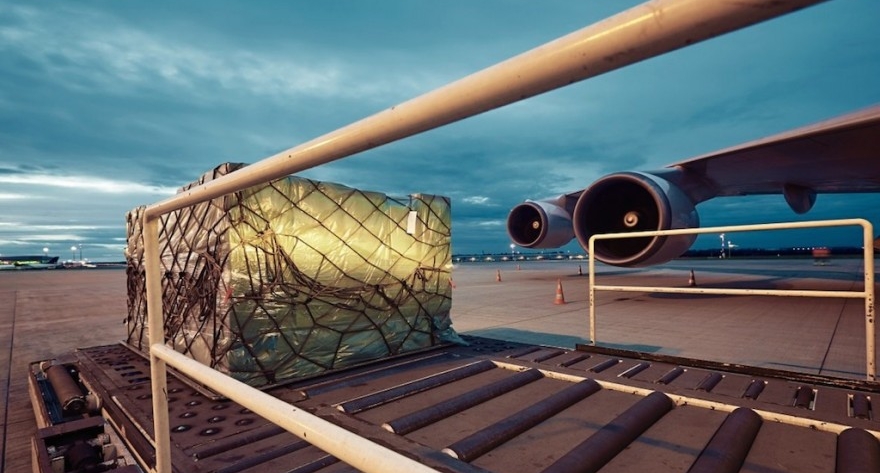Africa reports whopping 33.7% increase in air cargo volume in July
Aviation - The air cargo volume demand is growing month by month in the current year. Global air cargo data released by the International Air Transport Association (IATA) shows the volume measured in freight tonne kilometers (FTKs) has registered double digit growth in July 2017.

September 6, 2017: The global air cargo volume demand is growing month by month in the current year. Global air cargo data released by the International Air Transport Association (IATA) shows the volume measured in freight tonne kilometers (FTKs) has registered double digit growth in July 2017.
African carriers performed exceptionally well by posting the largest year-on-year increase in demand of all regions in July 2017. The freight volume grew by 33.7 percent - the second fastest monthly rise in seven years. Capacity increased by 4.5 percent over the same period. Demand has been boosted by very strong growth on the trade lanes to and from Asia which rose 80 percent year-on-year in June (latest available data) and by 65 percent in the first half of the year.
The global air freight volume increased by 11.4 percent in July 2017 compared to the same period a year ago. This was the fourth time in five months that double-digit annual growth was recorded. July's year-on-year increase in demand is nearly four times higher than the ten-year average growth rate of 3.1 percent.
Freight capacity, measured in available freight tonne kilometers (AFTKs), grew by 3.7 percent year-on-year in July 2017. Demand growth continues to significantly outstrip capacity growth, which is positive for airline yields and the industry's financial performance.
"July was a strong month for air cargo with double-digit growth. And for the third consecutive month demand for air freight grew at a faster pace than demand for air travel. While the outlook for the rest of the year remains positive, there are signs that the cyclical growth period may be nearing a peak," said Alexandre de Juniac, director general and CEO, IATA.
The robust growth in air cargo demand is consistent with an uptick in global trade, rising export orders and upbeat business confidence indicators. There are, however, signs that demand growth for air freight may be nearing a peak. Seasonally-adjusted air freight volumes were flat in June and fell in July, and the global inventory-to-sales ratio has stabilised. Air cargo often sees a boost in demand at the beginning of an economic upturn as companies look to restock inventories quickly. This tapers as inventories are adjusted to new demand levels.
JULY 2017 (% YEAR-ON-YEAR) | WORLD SHARE (1) | FTK | AFTK | FLF- %-PT (2) | PLF- LEVEL ( 3) |
Total Market | 100.0% | 11.4% | 3.7% | 3.0% | 43.7% |
Africa | 1.6% | 33.7% | 4.5% | 4.9% | 22.5% |
Asia Pacific | 37.4% | 11.0% | 6.3% | 2.3% | 55.0% |
Europe | 23.5 % | 12.1% | 5.5% | 2.6% | 44.2% |
Latin America | 2.8% | 5.8% | 4.7% | 0.3% | 30.6% |
Middle East | 13.9% | 9.3% | -0.4% | 3.9% | 43.6% |
North America | 20.7% | 11.9% | 1.1% | 3.4% | 34.9 % |
(1) % of industry FTKs in 2016 (2) Year-on-year change in load factor (3) Load factor level
All regions posted robust freight growth in July 2017.
Asia-Pacific airlines' freight volumes grew 11 percent in July 2017 compared to the same period a year earlier and capacity increased by 6.3 percent. Demand growth was robust on all the major routes to, from and within the region. Seasonally-adjusted international freight volumes fell slightly in July but remain more than 3 percent above the volumes reached following the 2010 post-global financial crisis bounce-back.
North American carriers posted an increase in freight volumes of 11.9 percent in July 2017 and a capacity increase of 1.1 percent. Seasonally-adjusted international freight volumes continued their strong upwards trend. The strength of the US dollar has boosted the inbound freight market over the past few years. Data from the US Census Bureau showed a 12.5 percent increase in air imports to the US in the first half of 2017. However, the decline in the US dollar since the start of the year is likely to help rebalance trade flows.
European airlines posted a 12.1 percent increase in freight demand in July 2017 and a capacity increase of 5.5 percent. Double-digit growth in international demand has now been recorded in nine out of the past eleven months bolstered by strong demand on the Europe-Asia market. While export orders remain strong the recent strengthening of the Euro may begin to weigh upon the region's exporters.
Middle Eastern carriers' year-on-year freight volumes increased 9.3 percent in July 2017 and capacity decreased 0.4 percent. Seasonally-adjusted international freight volumes have maintained their solid upward trend. However, amid strong competition from other region's carriers particularly on the Asia-Europe route, the Middle East carriers are not seeing as strong a pickup in the seasonally adjusted traffic trend as other region's carriers.
Latin American airlines experienced a growth in demand of 5.8 percent in July 2017 compared to the same period in 2016. Capacity increased by 4.7 percent over the same period. Seasonally-adjusted international freight volumes grew strongly in July 2017 however they remained 9% percent lower than at the peak in 2014. The region continues to be impacted by challenging economic and political conditions, particularly in the largest economy, Brazil.


